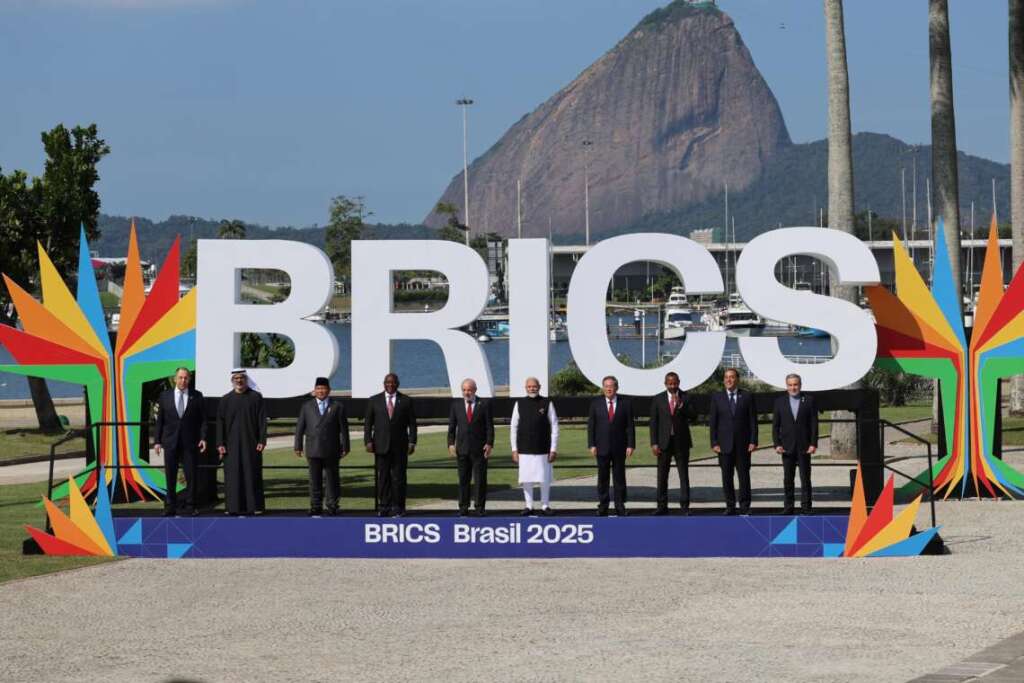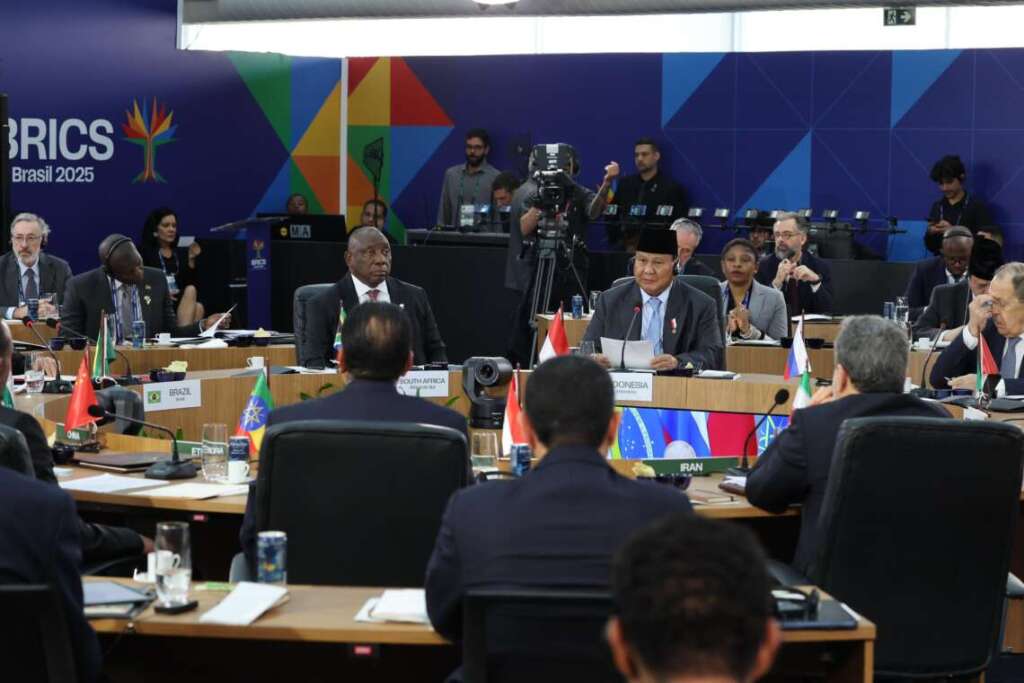As India prepares to take BRICS’ helm in 2026, its success will be measured not just by growth metrics but by its ability to unify…reports Asian Lite News
All eyes were on the 17th BRICS Summit held in Brazil from July 6 to 7. The summit convened at a moment of profound contradiction between the bloc nations.
The contradictions are outlined in the recent South China Morning Post article titled “Questions loom at BRICS Rio summit about group’s effectiveness,” illustrating the following.
In April, BRICS foreign ministers failed to issue a joint communique due to disagreements over advocating for permanent UN Security Council seats for Brazil, India, and South Africa. The summit’s significance is further underscored by the absence of key leaders: Chinese President Xi Jinping will not attend for the first time, sending Premier Li Qiang instead, while Russian President Vladimir Putin will appear via video, with Foreign Minister Sergey Lavrov attending in person.
These developments reflect ongoing uncertainties about BRICS’ future direction.
As the South China Morning Post observed: “The prospects for a convincing show of unity are unclear at best,” a sentiment echoed by diplomats preparing for contentious negotiations on trade, currency mechanisms, and geopolitical positioning.

This is as Egypt and Ethiopia, newly admitted members into the BRICS bloc, blocked the deliberations supporting South Africa’s UN Security Council bid (exposing how expansion may have exacerbated rather than resolved tensions, especially among the new included African nations in BRICS). Yet weeks later, the same countries aligned to sign a statement condemning American and Israeli military strikes on Iran, a newer BRICS member, calling the attacks violations of international law.
As the bloc itself grapples with divisions that threaten its cohesion, Morgan Stanley has recently projected that BRICS plus nation India will outpace all major economies in 2025–26. This dichotomy presents India with both an opportunity and a test as it prepares to assume the BRICS chairpersonship in 2026. The question is whether New Delhi can leverage its economic momentum to steer the fracturing alliance toward meaningful cooperation?
The latest Morgan Stanley Global Investment Committee report (The India Opportunity) paints a striking picture of divergence. India’s economy is forecast to grow at 5.9% in 2025 and accelerate to 6.4% in 2026 (Q4/Q4), the strongest performance among major economies.
This growth, as expanded by Morgan Stanley, is driven by domestic investment surges, structural reforms, and thriving equity markets, which stand in stark contrast to the broader global slowdown. The US is projected to grow at just 1%, the Eurozone below 1%, and China at 4.0%, a convergence of weakness that makes India’s trajectory all the more remarkable.
“India remains the fastest-growing economy in our coverage,” Morgan Stanley affirmed, maintaining its “overweight” recommendation alongside Singapore and the UAE. This endorsement underscores India’s emergence as the sole bright spot in an otherwise dim global landscape.
India’s impending BRICS leadership arrives at a pivotal juncture. Its economic projections offer tangible leverage to advance two critical agendas:

Institutional Reform: The bloc’s failure to unite on the United Nations Security Council expansion reveals structural flaws India must address, particularly in balancing new members’ interests with core group priorities.
Geopolitical Tightrope: Navigating Western partnerships, unipolarity, narrow nationalism and African disunity while maintaining BRICS solidarity will require deft diplomacy.
The stakes are just too high for the Global South. For Africa and developing nations watching closely, India’s story offers both inspiration and caution. Its diplomatic prowess, reform playbook, manufacturing incentives, and strategic foreign direct investment policies, provides a replicable model.
Clearly, India, under the leadership of Prime Minister Narendra Modi, has come to understand the ideals of “Restoration by Submission”, which has seen India being able to manage the balance of power, which at its core fundamentally has been national interest and political will.
Of course, even as India assumes a leading role, scepticism persists about its ability to bridge BRICS’ internal divisions and forge genuine cohesion. Observers caution that prospects for meaningful unity remain “unclear at best.” However, with India poised to dominate global economic narratives in the coming years, it may have no choice but to wield its growing influence to foster collaboration among its increasingly fractious partners.
This challenge comes at a defining moment. In a decade marked by geopolitical upheaval and faltering leadership across traditional power centres, India’s capacity to guide BRICS through internal crises and external pressures could prove transformative. The bloc’s future and perhaps India’s own global standing will hinge on how effectively it translates economic momentum into diplomatic breakthroughs.
As India prepares to take BRICS’ helm in 2026, its success will be measured not just by growth metrics but by its ability to unify. The bloc must confront its divisions with pragmatism, and India, armed with unparalleled growth projections, is uniquely positioned to lead this new era. The coming months will test whether BRICS can coalesce around actionable agendas rather than symbolic gestures.














